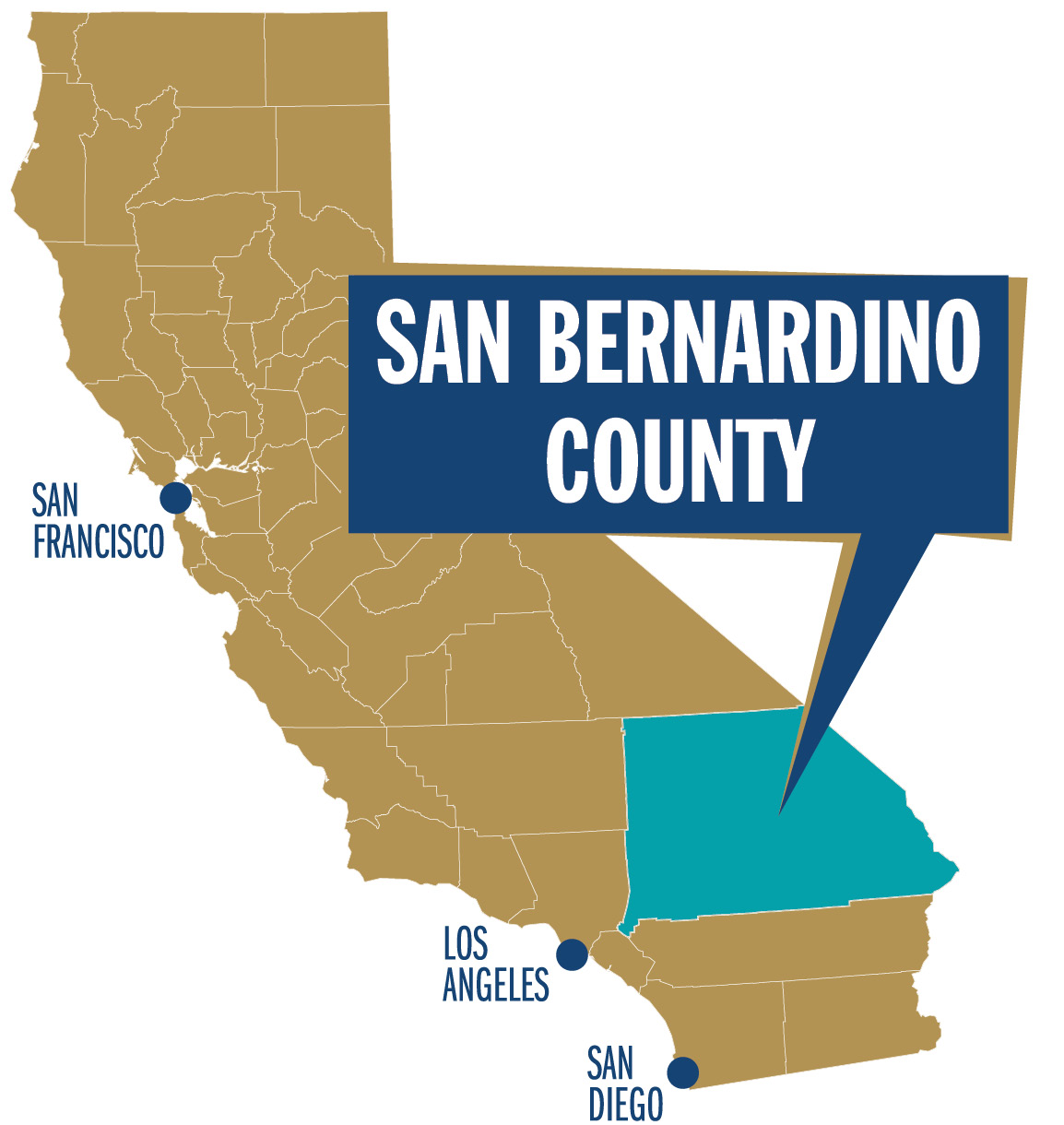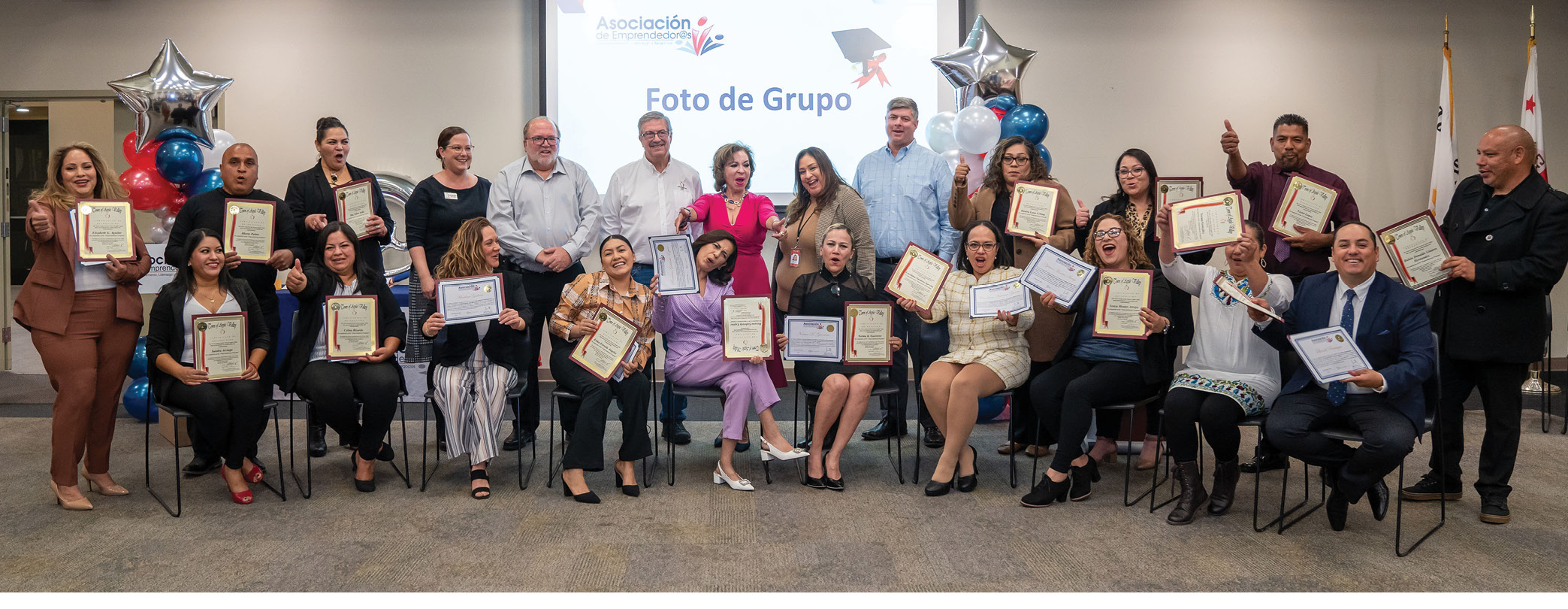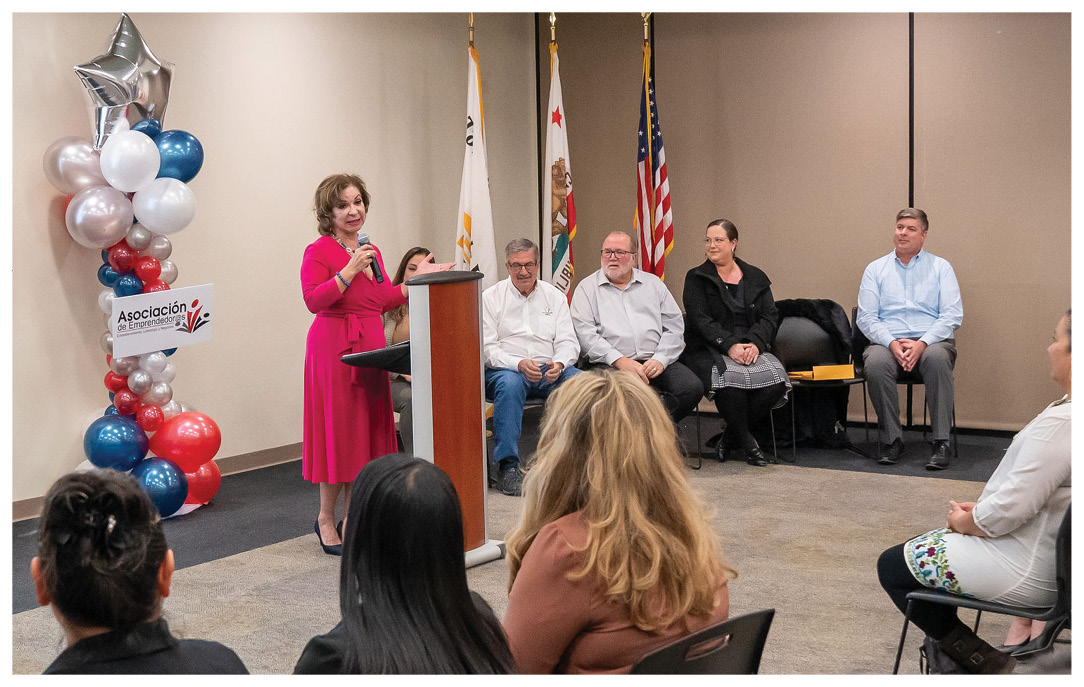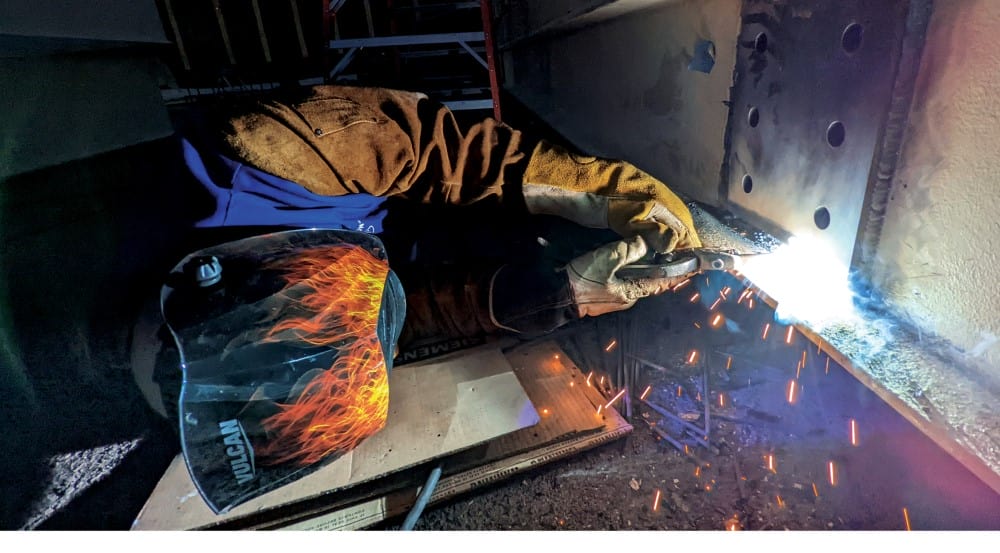Manufacturers doing business in Southern California’s San Bernardino County have an ally in the county’s Workforce Development Department (WDD). Crown Technical Systems in Fontana, for example, is hiring local workers, upskilling them, and using On-the-Job
Training (OJT) funds from a WDD incentive program to cover half of their wages.
Does that sound too good to be true? It isn’t. The designer and builder of industrial power distribution equipment has been using this program to grow its workforce, and thereby its business, for a number of years.
Michele Yoshida, talent acquisition manager for Crown Technical Systems, tells Site Selection that the county’s OJT program “has allowed us to bring on transferrable and relatable skills. We have been able to leverage those funds to help our employees excel in their new roles and earn industrial certification.”
Crown has grown into one of the nation’s leading suppliers of power equipment, including
industrial-grade control panels and switchgear. “Over the years, by taking advantage of the county’s support services and incentives, we have been able to grow our headcount and our business partnerships,” says Yoshida. “Also, because we participate in the county’s job fairs, our brand awareness in the community is growing.”
Yoshida says Crown collaborates with the county Workforce Development team, the Fontana Chamber of Commerce, local trade and technical schools, and a variety of community partners.
“We also like the graduates we see from San Joaquin Community College, Universal Technical Institute and Intercoast College,” says Yoshida. “The skilled labor we are able to find from these local institutions does a good job of meeting our hiring needs. Being located close to Riverside County is a big advantage too, as that enables us to pull labor from the south.”
Crown relocated from nearby Ontario to Fontana 13 years ago and currently occupies a 98,000-sq.-ft. plant. “We are bursting at the seams. We have a total of 310 employees,” says Yoshida, noting that the company also operates plants in Garland, Texas, and Vaughan, Ontario, Canada.
She credits local government with helping the firm grow. “The City of Fontana has been very helpful to the company. So has the San Bernardino County Workforce Development Department,” she says. “One of the nice things about this location is that engineers who live in the Inland Empire can work closer to home. In Southern California, most engineering jobs are in Los Angeles and Orange County. Crown gives these engineers an opportunity to shorten their commute and enjoy more time with their families.”
Hotlines and Other Helpers
Brad Gates, Director of the San Bernardino County Workforce Development Department, says success stories like Crown’s validate the county’s work. “The On-the-Job Training Program is a very good service,” he says. “We help employers hire and train new employees. Businesses agree to hire an individual and train them on the job for three months. In exchange, we reimburse the business for 50% of the new hire’s wages for three months. This is a very popular program. It is especially helpful for small businesses. It lessens the risk of hiring someone, and it benefits the new employee. They are being trained on the job which is a win-win situation.”

“We have some amazing partnerships. California State University-San Bernardino and Loma Linda University are two of them.”
— Brad Gates, Director, San Bernardino County Workforce Development Department
“Over the past year Crown has hired 10 new workers through this program” says Gates.
Another successful initiative at the WDD, says Gates, is the county’s Layoff Aversion Program. “We work with small businesses that are struggling,” he says. “We have business experts who are under contract to provide direct coaching services to help these small businesses overcome whatever challenge they are facing. Over the last three years, we have had 66 businesses go through the program, which saved and retained over 850 jobs. We are pioneers nationally in the creation of that program.”
Innovation like that is why the San Bernardino County Workforce Development Department perennially is recognized as one of the best workforce agencies in the U.S.
Gates cites local employer KeHE, a national distributor of organic foods, as another success story. Based in Chino, KeHE uses the county’s Customized Recruitment Program to fill open positions. “We put on a recruitment event to host the business at one of our recruitment facilities and do whatever is necessary to help them fill their vacant positions,” says Gates. “We host up to 20 employers at a time and convene hundreds of job seekers in a room where they meet and match with jobs that suit them. We’ve been able to help businesses large and small grow their workforce through these job fairs, and they are open to anyone.”
Local employers also take advantage of a Human Resources Hotline and labor market data made available by the county’s WDD. “With our 1-800 line, any business can call this number, talk to an expert, and receive free advice on any human resources matter they may be facing,” says Gates. “Through this program, we are able to serve hundreds of local businesses every year.”
Gates’ department also regularly produces local labor market reports that are free and available to the public. “We just completed a report, which is well organized and goes through each industry sector in the county and shows our current employment and job growth in each sector. It also shows median wages in each sector. The summary page is very helpful to review,” he says.
 Giving It the Old College Try
Giving It the Old College Try
At 1 million strong, San Bernardino County today has the largest labor force in its history. “We are the first county in California to recover all jobs lost due to the pandemic,” notes Gates. “That demonstrates the strength and resilience of our region.”
In a county of 2.2 million people spread out over 20,000 square miles (largest in the country), it also pays to have good partners. Gates says the WDD has plenty of those in the form of local colleges and universities.
“We have some amazing partnerships,” says Gates. “California State University-San Bernardino and Loma Linda University are two of them. They have amazing programs. CSU-SB has one of the top cybersecurity programs in the country. We have to compete to keep their graduates here in the region. They get recruited to work for the Department of Defense in Washington, D.C. Through this great program, we have been able to develop an apprenticeship program in cybersecurity in the region.”
Gates says his agency also works with Chaffey College and the In-Tech Center to train people to be industrial maintenance mechanics. “They graduate and immediately get hired with great jobs at great manufacturing companies,” he adds. “We also work with the Alliance for Education at the high school level. The Alliance works to make connections between employers in the community and our area high school students. The Alliance is turning career pathways into apprenticeships for good-paying, in-demand jobs.”
From Startup to Success Story
Sometimes, workforce development means taking a good idea and turning it into a job-creating engine. That’s exactly what Monica Robles is doing at her Asociacion de Emprendedor@s, an innovative program that works with Spanish-speaking entrepreneurs throughout the region.
Robles, founder and president of the organization, says the program — the first of its kind in California — was launched in 2016 in Orange County “when I created the curriculum as a business workshop for women who suffered from domestic violence and who needed to be able to support themselves. I focused the curriculum around three pillars: empowerment of the individual, leadership development and business legal compliance.”

Photos courtesy of Asociacion de Emprendedor@s

The real measurement of success, however, comes in the form of smiles that Robles sees on the faces of her graduates. Ofelia Calderon is one of them. “She had been working as a seamstress for 20 years in Hollywood,” says Robles. “But she was not just sewing clothes. She was designing them. When she came to me, I told her that she was a fashion designer. It took her a while to accept that and believe that. Today, after going through our training, she is one of the most successful Hispanic fashion designers in the country. She has been invited to participate in fashion shows in New York, Paris and Atlanta. She designs beautifully colored Mexican dresses, and she now has eight people working for her. All she was lacking was self-confidence when she first came to me. Now her business is a beautiful success story.”
What’s next for Robles and her team? Continuing to expand the program, she says.
“When the Economic Development Department of San Bernardino County found out about our program, they wanted to bring it to county residents in the High Desert region, so we brought it to Apple Valley in 2023,” says Robles. “Next, we will go to Victorville. There is a hunger for this kind of information in the Hispanic community. There was nothing in Spanish before we launched the first training program in 2016. The entrepreneurial spirit is alive and well among Spanish-speaking people. Ultimately, I want to serve the whole state of California.”
This Investment Profile was prepared under the auspices of San Bernardino County. For more information, contact the County’s Economic Development Department at 909-387-4700. On the web, go to www.SelectSBCounty.com.

